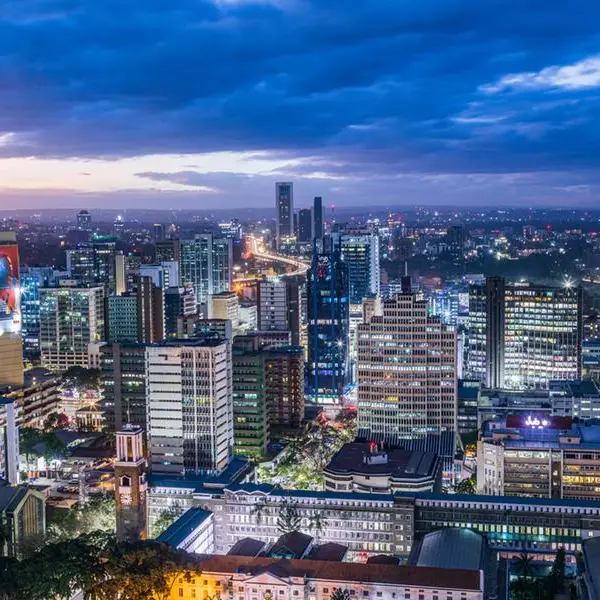PHOTO
AMID the unending blame game between the governors elected under the platform of the Peoples Democratic Party (PDP) and the All Progressives Congress (APC)-led Federal Government, investigations by Nigerian Tribune revealed that food inflation has increased by about 40 percent under the current administration of President Bola Tinubu.
The Nigerian Bureau of Statistics (NBS) had recently pegged the country’s food inflation rate at 35.41 percent, while the headline inflation hit an all-time 15-year-high of 29.90 percent.
In its Consumer Price Index (CPI) report released days ago, the NBS had said: “The Food inflation rate in January 2024 was 35.41 percent on a year-on-year basis, which was 11.10 percent points higher compared to the rate recorded in January 2023 (24.32 percent).
Related PostsTinubu has no solution to Nigeria’s problems — Ex-Rep, BugajeHardship: PDP backs own governors’ position against Tinubu, APCHardship: PDP backs own govs’ position against Tinubu, APC
According to the NBS, “The rise in food inflation on a year-on-year basis was caused by increases in prices of bread and cereals, potatoes, yam and other tubers, oil and fat, fish, meat, fruit, coffee, tea, and cocoa.”
On a month-on-month basis, the NBS said the food inflation rate in January 2024 was 3.21 percent, which was 0.49 percent higher compared to the rate recorded in December 2023 (2.72 percent).
The rise in the food inflation on a month-on-month basis was reportedly caused by a rise in the rate of increase in the average prices of staple foods like potatoes, yam, among others.
“The average annual rate of food inflation for the twelve months ending January 2024 over the previous twelve-month average was 28.91 per cent, which was a 7.38 per cent increase from the average annual rate of change recorded in January 2023(21.53 per cent),” the NBS had said.
However, findings by Nigerian Tribune showed that food inflation rate was 25.25 percent as of June, 2023.
In the CPI report issued in July, last year, the NBS had said: “The Food inflation rate in June 2023 was 25.25 per cent on a year-on-year basis, which was 4.65 per cent points higher relative to the rate recorded in June 2022 (20.60 per cent).
“On a month-on-month basis, the food inflation rate in June 2023 was 2.40 percent, which was 0.21 per cent points higher compared to the rate recorded in May 2023 (2.19 per cent).
“The average annual rate of food inflation for the twelve months ending June 2023 over the previous twelve-month average was 24.03 percent, which was 5.41 percent points increase from the average annual rate of change recorded in June 2022 (18.62 per cent),” the NBS stated.
However, comparing the January 2024 food-inflation rate of 35.41 percent with the 25.25 percent obtained in June last year gives a difference of 10.16, which is about 40 per cent of the latter.
However, the rate of food inflation in the last eight months of the previous administration of President Muhammadu Buhari was of a moderate spike as it began with 23.26 percent in September, 2022 and ended at 25.25 percent in June, 2023, giving a difference of 1.99, which is about eight percent of the former.
Speaking with Nigerian Tribune, an economic expert, Dr Salisu Olanrewaju, noted that though the surging inflationary pressure has taken a toll on the livelihood of many Nigerians, the Tinubu’s administration, by removing the petrol subsidy and floating the forex market, has demonstrated uncommon bravery which past administration couldn’t mutter to achieve long-term economic benefits for the country.
However, a professor of Economics at the Ekiti State University, Ado-Ekiti, Taiwo Owoeye, shared a different perspective.
He argued that though the two bold policies of Tinubu’s administration were the right ones, the damaging effects of the measures were what culminated in the extremely high food and headline inflation rate that has continued to inflict untold pains on Nigerians by greatly depleting their purchasing power.
He said: “The first thing to ask is why we have a food inflation rate as high as that and the answer is firstly the removal of the fuel subsidy, which is the initial problem. Then the second is the exchange rate.
“The floating of the Naira has led to rapid depreciation of the currency in relation to the dollar and other international currencies. And since Naira has lost about 68 percent of its value in the last couple of months, it is natural for you to have food inflation.
“I know there have been arguments that even the prices of staple foods made locally are increasing, but this can be linked to the increase in the cost of transportation occasioned by the increase in the pump price of petrol.
“Yes, we know the twin policies are good, but the way everything has turned out to be, especially the floating of the forex market, has not been what most economists, including I had anticipated.’’
“We had thought that if the government merged the multiple forex market, the naira would eventually find its value and everything would be fine. But it has not turned out to be that for one important reason, which is that there has been a lot of panic in the market.”
u Copyright © 2022 Nigerian Tribune Provided by SyndiGate Media Inc. (Syndigate.info).





















